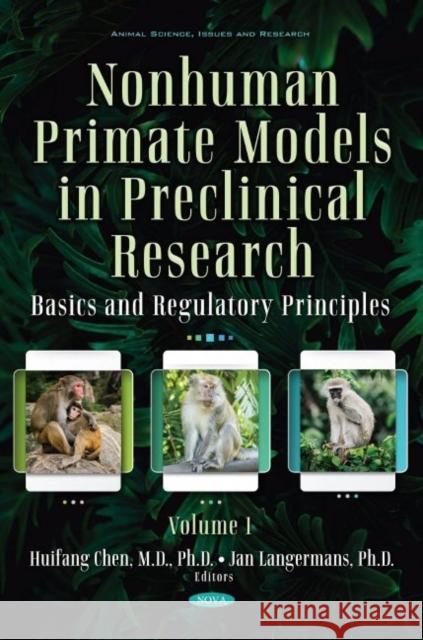Nonhuman Primate Models in Preclinical Research: Basics and Regulatory Principles » książka
Nonhuman Primate Models in Preclinical Research: Basics and Regulatory Principles
ISBN-13: 9781536194401
Nonhuman Primate Models in Preclinical Research: Basics and Regulatory Principles
ISBN-13: 9781536194401
(netto: 801,98 VAT: 5%)
Najniższa cena z 30 dni: 836,90
ok. 22 dni roboczych.
Darmowa dostawa!
Due to the phylogenetic relationship and close genetic and biological similarities with humans, non-human primates (NHP) are regularly used in biomedical and behavioural research. However, because of their highly developed cognitive abilities and social skills, the use of these animals in biomedical research is debated more and more. Although it is acknowledged that in specific research areas NHP are still essential, it is recognized that the use of these animals can only be done under strict conditions under the most optimal welfare aspects. Welfare aspects include housing conditions, non-invasive methods and application of the 3Rs policy. Although many refinement methods have been described in nationally and internationally accepted guidelines on animal laboratory practice, recognition of the guidelines is unfortunately not universal. The present book covers a wide range of NHP models in preclinical research and welfare issues. The following chapters will cover: refinement of the use of NHP in biomedical research; NHP ethics and regulations in Europe; biological basis differences in the human and NHP; the major histocompatibility complex (MHC) immunology in NHP; stem cell biology in NHP; neuro and gliogenesis in an NHP ischemia stroke model; NHP models in autoimmune disease, organ transplantation and infectious disease research; viral diseases in NHP; NHP models in Parkinson's disease, in neurodegenerative disorders research and in cardio-cerebrovascular disease research; islet transplantation; ophthalmic diseases research and neurophysiology in NHP; transgenic engineering in NHP; NHP models of cancers; NHP models in respiratory disease research; NHP models in clinical and non-clinical pharmacology; NHP models in lung transplantation; and aging research in NHP. This book encapsulates a large volume of knowledge scientists have achieved in the field of nonhuman primate models in preclinical research. The editors have invited experts from the United States, Canada, and Europe to contribute 23 chapters in their respective fields of their expertise.











